The themes of our Class of 2021
It is not unusual for the creative artists of each generation to communicate about and show insight into social issues of their time and to offer insights into themselves as individuals. The creative artists of our time can often express the thoughts and feelings of many people who may not have a voice or may not have the appropriate platform for communicating their ideas. Curiosity along with imagination, are important attributes that creative artists have because they have the capacity to question, investigate and learn.

Lauriston has a proud history of success in the creative arts and the 2021 results were exceptional.
- 80% of our VCE Studio Arts class achieved a study score of 40+ which included four perfect 50s.
- 75% of our VCE Visual Communications class achieved a study score of 40+
- Over 80% of our IB Visual Arts class achieved a subject score of 6 or 7 including six perfect 7s
While no one is going to celebrate the COVID years of IB and VCE that this group has endured, it is quite astounding what they have achieved in spite of those restrictions. Behind these results was an unwavering support from the teachers, the determination and camaraderie of our students and the support from their parents.
There are a number of Lauriston graduates who are making their mark in the world and I have no doubt that many more will have a pronounced impact on the Arts communities locally and globally in the coming years.
I am thrilled that 3 of our 2021 graduates have been chosen to exhibit their works in the 2022 Top Arts Exhibition. To be selected to have your works displayed in the National Gallery of Victoria is such an incredible achievement and one that I know helps encourage young people to pursue their passion for the arts.
Our Year 12 IB/VCE Exhibition of Art, Visual Communication and Design and Media exemplified the diversity of artistic practice and creativity of our students, but they open a conversation about their thoughts on a broad range of themes that are prevalent today in our society.
The students have been courageous in sharing their humanity with us through their work with a poignant honesty. They want to share their thoughts and feelings and hopefully, provoke us to reflect on these matters ourselves.

Themes explored
The impact of climate change, and specifically, the 2019/2020 Bushfires in Victoria and other States of Australia are both prominent as starting points for the work of students. Black Summer of bushfires burnt 24 million hectares of land, destroyed 3000 homes and killed or displaced three billion animals. Communities were devastated and we continue to debate the impact of climate change in Australia and the world. Sir David Attenborough, through his documentaries and work on climate change has highlighted the scientific evidence is that if we have not taken dramatic action within the next decade, we could face irreversible damage to the natural world and the collapse of our societies. It is our young people who are standing up and demanding immediate change and they are keenly aware that when something goes wrong in one part of the world it can immediately impact the lives of others somewhere else.
It makes sense that our students have looked to Indigenous Ways of Knowing which is steeped in a deep respect for the land and the necessity for a reciprocal relationship with land. Like us, our students have observed the national discussion about Indigenous Sovereignty, Indigenous people in custody, the Stolen Generation and the impact of our current COVID-19 pandemic on Indigenous communities. These important issues, as well as global issues such as gun violence and personal safety have informed our students as they consider themes for their work.
I was keen to understand the impact that the COVID-19 pandemic and Lockdowns had on our students and the works they produced. There is certainly evidence throughout the exhibition of reflection on personal identity and belonging to a family or peer group. There are questions about our personal freedoms and how the individual responds to rights that are taken away in order to benefit the health and safety of the community as a whole. The Lockdown brought time for introspection about one’s place in the world, one’s personal values and what it means to be a human.
I do not mean to suggest that our students who study Visual Art, Visual Communication and Design and Media, are alone in reflecting upon these issues. In fact, I believe that our Year 12 students as a whole give careful consideration to such matters. We are fortunate in that our IB/VCE Exhibition enables our girls an opportunity to ‘speak’ about such matters through their works.

Exploring permanent impermanence
The VCE/IB Exhibition has brought me to consider the writing of Futurist, April Rinne, on what she has called the ‘flux mindset’. She believes we live in a world of change which is accelerating, and the flux mindset is like a bento box filled with great ideas: a curated collection of disciplines which taken together provide the nourishment to thrive amid whatever changes come our way. I am particularly mindful that our young people, and in particular, our Year 12 students, have lived through two years of COVID- 19 and grown up during a period of climate change, political and economic turmoil, and significant social issues. We no longer live in a fixed and predictable world, and when change happens it takes a shorter period for it to be fully felt around the world. As Rinne writes, we are living in a state of permanent impermanence.
Rinne writes about the 8 Flux Superpowers that are essential practices for a world of flux. These Superpowers are:
- Run slower: this is a determined slowing down in the fast-paced world
- See what is invisible: when life feels blurry shift your focus from what is visible to what is invisible
- Get lost: in the landscape of change, getting lost is how you find your way
- Start with trust
- Know your ‘enough’
- Create your portfolio career: treat your career as a portfolio to curate rather than a path to pursue
- Be all the more human and serve other humans: your key to thrive is to be all the more human
- Let go of the future: this will enable a better future to emerge.

If I consider the works presented at our Year 12 IB/VCE Exhibition, I would contend that our students have gotten lost in the landscape that is our global world and reflected on their responses to the changes that are occurring around them. I believe they have shifted their focus to what is immediately in front of them and tried to look at the many complex parts of the issues and concerns they raise in their works. While the 2019-2020 Fires are important, they are part of a bigger picture regarding climate change and the politics of climate change in Australia. I suppose our students have let go of the future in that they are trying to envisage a different and better future where we have found responses to issues which have the capacity to endanger our planet and its people.
The 2021 IB/VCE Exhibition has for me, laid bare the continuous nature of change in our lives and the feeling that we can no longer predict what will happen in our present, let alone with future. This is not something to despair about, however, but rather to plan for and consider various scenarios of what the future might be like for each one of us.
If we are prepared to accept that life is not predictable and fixed, then we will emerge with a better future where we will thrive. I have great hope for the lives of our Class of 2021.
Susan Just, Principal
SHARE THIS ON

